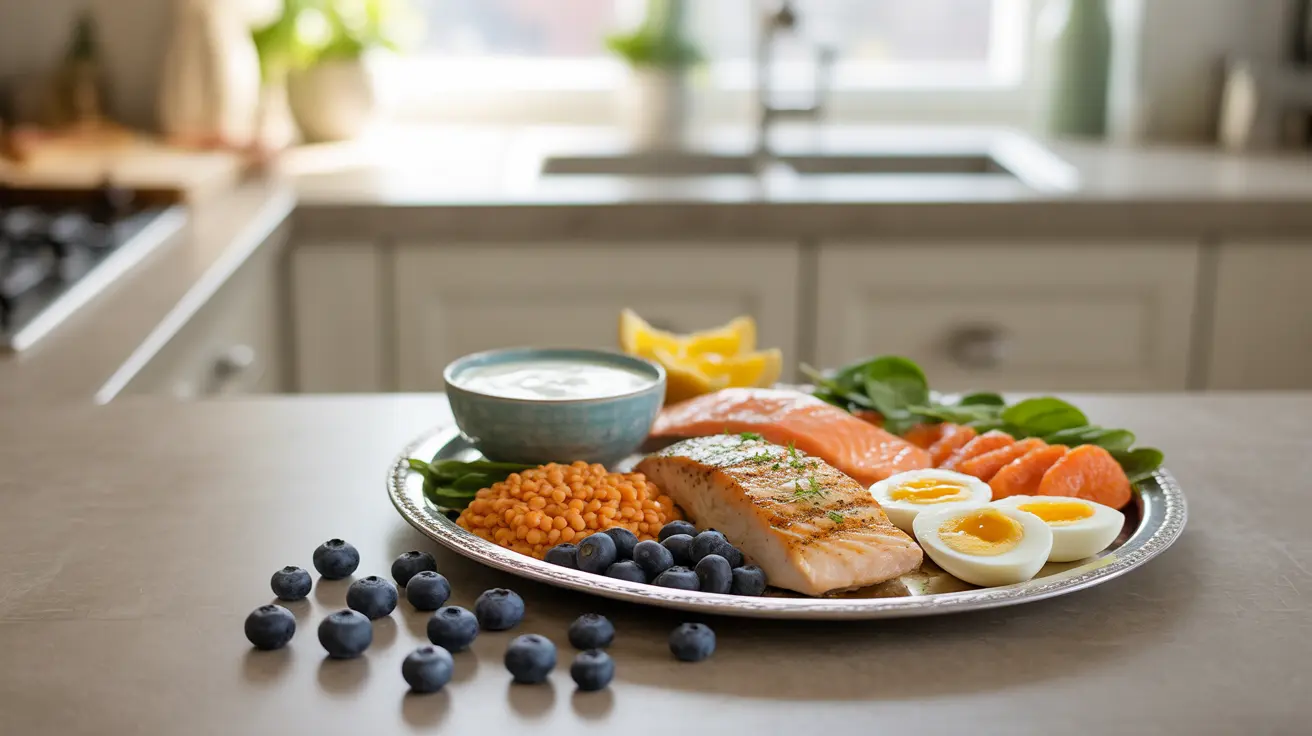When facing acute myeloid leukemia (AML), maintaining proper nutrition becomes a crucial part of the treatment journey. A well-planned diet can help support your immune system, maintain strength, and manage treatment side effects. This comprehensive guide will help you understand the best dietary choices during your AML treatment.
Understanding Nutritional Needs During AML Treatment
Acute myeloid leukemia and its treatments can significantly impact your body's nutritional requirements and ability to process foods. Creating an optimal eating plan becomes essential for maintaining strength, supporting immune function, and promoting recovery during treatment.
Protein-Rich Foods for Immune Support
Protein plays a vital role in maintaining muscle mass and supporting immune function during AML treatment. Focus on incorporating these high-quality protein sources:
- Lean poultry like chicken and turkey
- Fish rich in omega-3 fatty acids (salmon, mackerel)
- Eggs (fully cooked)
- Greek yogurt and cottage cheese
- Plant-based options like lentils and chickpeas
Immune-Boosting Fruits and Vegetables
Choose nutrient-dense produce that supports immune health while being gentle on your digestive system:
- Cooked vegetables like carrots, sweet potatoes, and squash
- Antioxidant-rich berries
- Citrus fruits high in vitamin C
- Leafy greens (well-washed and cooked when necessary)
- Bananas for easy digestion
Foods to Avoid During Treatment
Certain foods can increase infection risk or interfere with treatment. It's important to avoid:
- Raw or undercooked meat, fish, and eggs
- Unwashed fruits and vegetables
- Unpasteurized dairy products
- Moldy or expired foods
- Raw honey and unprocessed nuts
Managing Common Eating Challenges
Dealing with Nausea
Try these strategies to manage treatment-related nausea:
- Eat smaller, more frequent meals
- Choose bland, easy-to-digest foods
- Consume ginger tea or candied ginger
- Stay hydrated with clear fluids
- Avoid strong food odors
Coping with Mouth Sores
When dealing with mouth sores, consider:
- Soft, cool foods like smoothies and yogurt
- Room-temperature or cold foods
- Avoiding acidic, spicy, or rough-textured foods
- Using a straw when drinking
- Maintaining good oral hygiene
Frequently Asked Questions
What are the best foods to eat for someone with acute myeloid leukemia to maintain strength and weight? Focus on nutrient-dense foods like lean proteins, whole grains, and healthy fats. Include protein-rich foods at every meal, choose easily digestible carbohydrates, and incorporate healthy fats from sources like avocados and olive oil.
Which protein-rich foods are recommended for supporting immune health in acute myeloid leukemia patients? Recommended protein sources include well-cooked lean meats, fish, eggs, dairy products, and legumes. These foods should be properly prepared to minimize infection risk while maximizing nutritional benefits.
How can I manage eating difficulties and nausea during acute myeloid leukemia treatment? Eat small, frequent meals throughout the day, choose bland foods, stay hydrated, and try ginger-based products. Consider cold foods when nausea is strong, and eat when you feel hungry rather than sticking to strict meal times.
Are there specific foods that people with acute myeloid leukemia should avoid to reduce inflammation and infection risk? Avoid raw or undercooked meats, unpasteurized dairy products, unwashed produce, and foods that may contain harmful bacteria. Also, limit processed foods and those high in added sugars, which can promote inflammation.
What dietary tips can help manage symptoms like diarrhea or mouth sores in acute myeloid leukemia? For diarrhea, choose binding foods like bananas, rice, and toast, and stay hydrated. For mouth sores, opt for soft, cool foods, avoid acidic or spicy items, and use a straw when drinking. Always maintain good oral hygiene.




